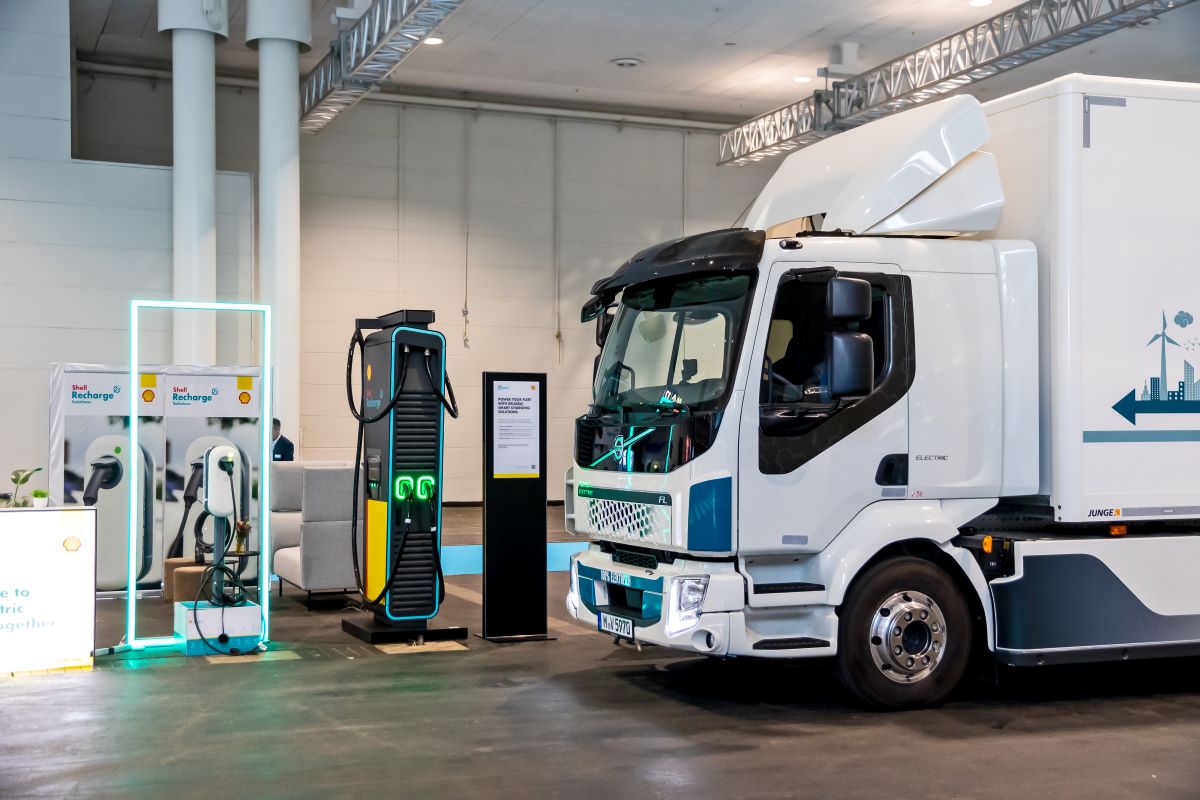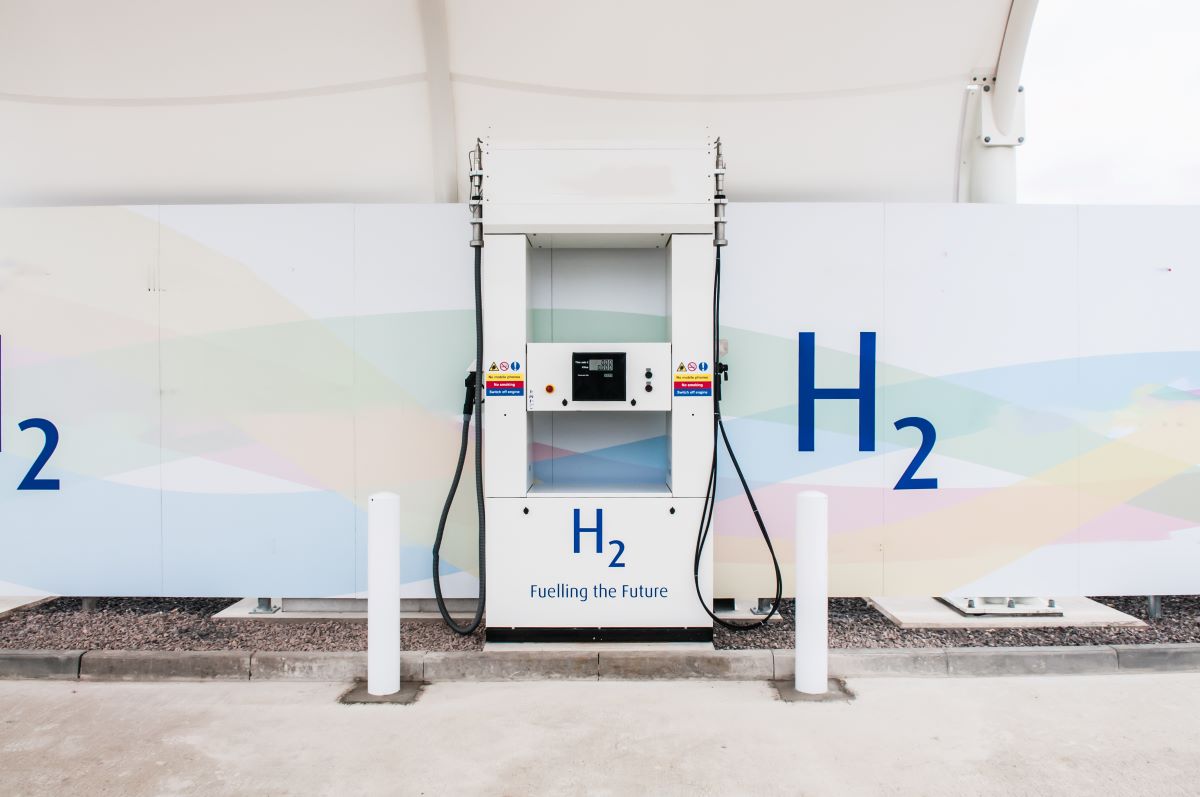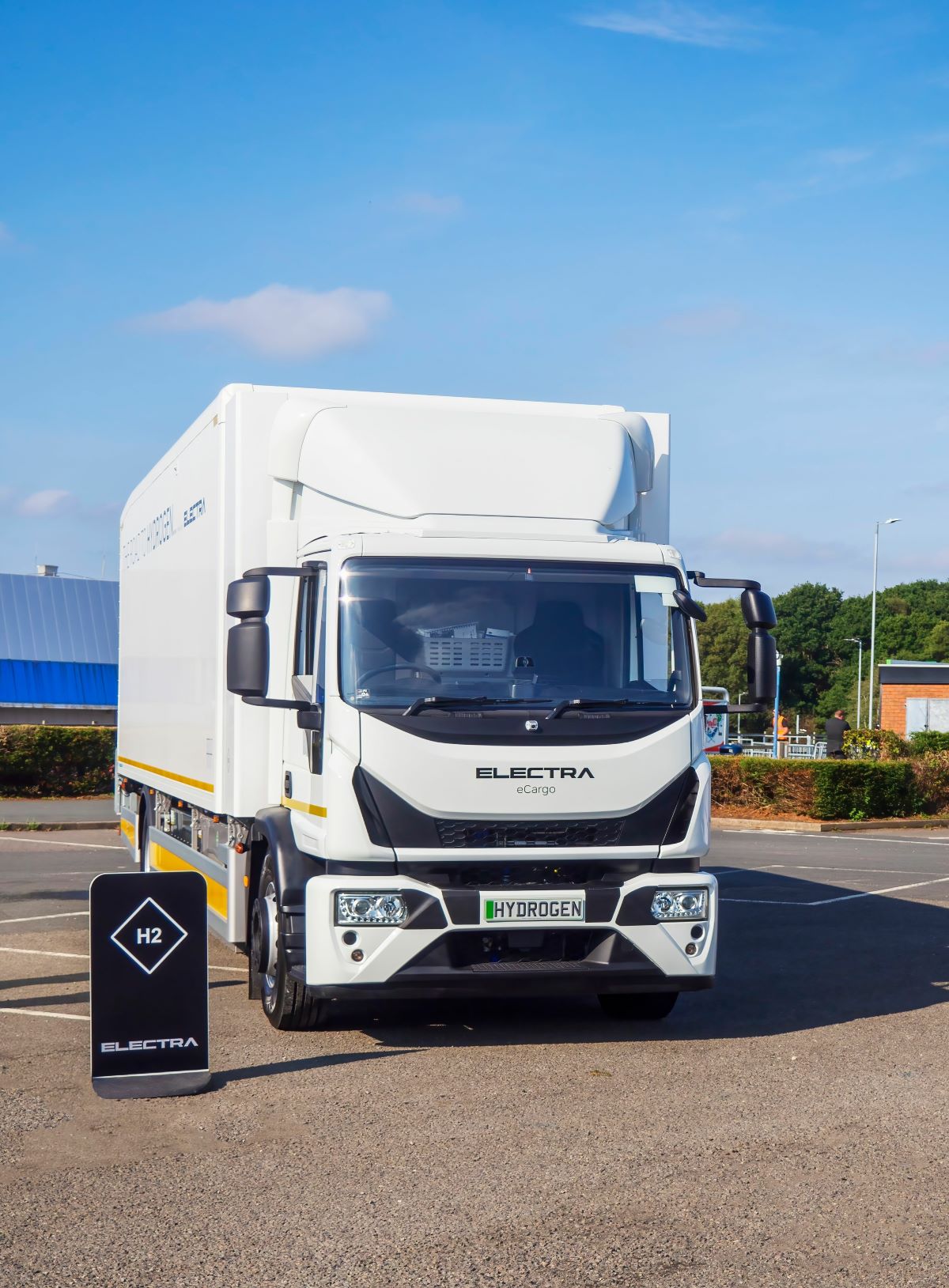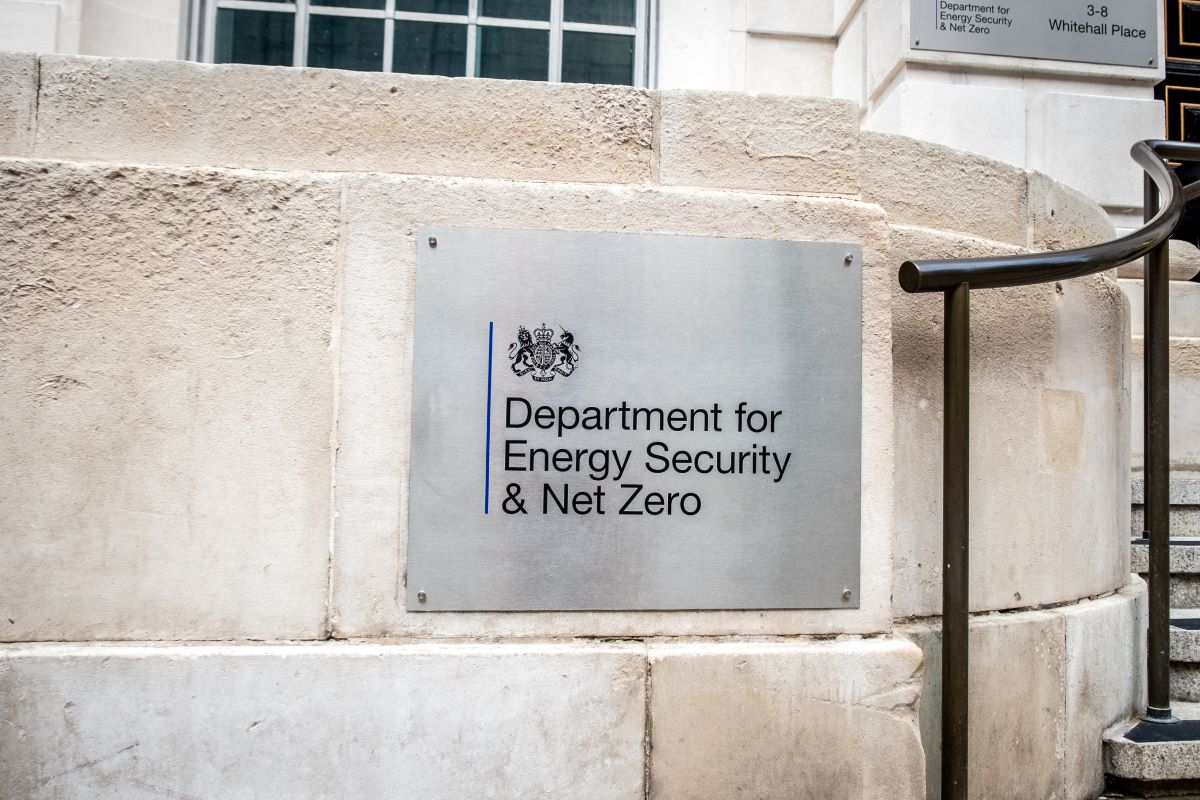Electric vs. hydrogen for trucks: which is better?

Despite only making up 1% of all vehicles on Britain’s roads, the carbon footprint for heavy goods vehicles (HGVs) accounts for 20% of the UK’s transport emissions – that’s equivalent to emissions from all of the UK’s air travel, buses and shipping combined.
As a result, the decarbonisation of lorries operating in the UK could have a very positive impact on the environment and would help the government get one step closer to its goal of reaching net zero by 2050.
The sale of new non-zero emission heavy goods vehicles is now set to be banned in 2040, so many are now considering what the best alternative fuel for lorries may be.
Most freight experts have their money on hydrogen, but why is that, especially when electric passenger cars have proven so popular? We explore all here.
Why aren’t electric HGVs popular among experts?
More than one in ten new vehicle sales are electric, so it stands to reason that the same could be applied to HGVs. There are a number of factors that make this difficult to implement though, such as the size and power of most lorries in the UK, as well as the driving habits of their owners.
The battery has to be sizeable to power a HGV
For starters, the size of the vehicle is a huge consideration as it affects how HGVs can be powered.
Although battery technology for electric vehicles (EVs) has advanced rapidly in recent years, with batteries generally becoming more powerful but compact, you would still need a pretty hefty battery (or multiple batteries, in the case of the Mercedes eActros) to power a lorry. In fact, research from CNBC suggests that batteries for electric trucks could weigh up to 7.26 tonnes (16,000 pounds).
Considering the absolute maximum load for lorries in the UK is 44 tonnes, this would take up a significant portion of the weight available in the vehicle (around 16.5% in total). For freight drivers, this would impact the number of goods that could be transported, potentially decreasing profitability.
Recharging times and the EV infrastructure for lorries

Time is precious as the saying goes, and nowhere is this mindset more prevalent than in haulage, where it’s not unusual to have very tight deadlines and a strict schedule. While this works well for petrol and diesel HGVs because they’re quick and easy to refuel, this doesn’t bode well for electric vehicles, which can take multiple hours to recharge.
That being said, an overnight charge would probably suffice for drivers who make relatively short trips each day.
The only cases where this would fall short is for long-haul drivers, who would likely need to stop off to charge their EV while on the road. Although this could take as little as 30 minutes with fast chargers made specifically for electric HGVs, such stations are still few and far between; so far, there is only one truck-dedicated public charging station in the UK located in the North West on the M61.
Whilst this is a promising start, as we’ve seen with other areas of decarbonisation within the motor industry, it can be difficult to get buy-ins for new technology when the infrastructure isn’t ready for the change.
Thankfully, BP Pulse have announced that they’re creating mega-watt charging sites for HGVs across Europe and in the UK, with the first chargers scheduled to be installed from 2026.
Is hydrogen the better option for long-haul journeys?

Many consider hydrogen as the only viable option for heavy goods vehicles and freight drivers.
Setting up hydrogen fuel points is easier than their electric counterparts
Hydrogen fuelling points are perhaps the easiest to implement out of all the alternative fuels available as they can simply be added to traditional petrol stations, including truck stops and other stations made specifically for HGVs and other commercial vehicles. This is a far cry from electric charging points, which require a dedicated space within the forecourt to operate.
Refuelling time is just as short as it is for petrol and diesel vehicles
One of the biggest concerns around electric HGVs is the time it takes to recharge the vehicle on the road. Hydrogen takes this issue out of the equation entirely as vehicles that run on H2 can be refuelled just like a petrol or diesel engine. This cuts hour-long waits down to a matter of minutes – perfect for busy truckers who want to get on with their journey.
You don’t need room for a battery on board
Unlike their electric counterparts, you won’t need batteries that take up the space that could otherwise be used for freight storage.
Even hydrogen fuel cell vehicles, which combine hydrogen fuel with an electric battery that recaptures energy from braking, are unlikely to need as much room for the battery as lorries powered solely by electricity.
Less range anxiety

Hydrogen vehicles generally have a longer driving range than their electric counterparts, which helps to eliminate anxiety around finding a refuelling station on extended trips. The creation of new hydrogen fuelling stations – which we’re covering next – will also help alleviate this further.
Are there any hydrogen fuelling stations in the UK for HGVs?
As with electric HGVs, the infrastructure for hydrogen in the UK is still in its infancy. However, owing to the emissions produced by trucks in the country, many businesses and the government have started to prioritise building these.
Element 2 is one such business focused on creating the hydrogen infrastructure needed for commercial vehicles within the UK. They announced in late 2023 that, with government funding, they would be creating a nationwide network of hydrogen refuelling stations for commercial vehicles, with the first due to open at Teesside International Airport in 2024.

The company has also partnered with Exelby Services, which owns several truck stops in the North of England, to develop hydrogen refuelling stations at their Coneygarth and Golden Fleece locations. These will help service critical trunk roads along the A1(M) and M6 motorways respectively.
A further 31 stations are due to be worked on by the company, and Element 2 are also providing funding to local colleges to support local workforce training and develop future talent – a development that will help ensure hydrogen can remain a part of the country’s net-zero energy strategy for the decades to come.
Are there any hydrogen HGVs available to buy?
There are currently no hydrogen HGVs available to buy, but Tevva, a company focused on manufacturing zero-emission trucks, has developed the UK’s first 7.5 tonne hydrogen-electric truck, which combines a hydrogen fuel tank with a battery pack that doesn’t need to be recharged.
HVS have also developed a 40 tonne hydrogen-electric HGV and have begun testing the prototypes to ensure they’re up to standard. With a range of up to 370 miles and a refuelling time of 15 to 20 minutes, this is a promising candidate for drivers who require a truck with a long range.
Electra have also created a zero-emissions 19-tonne refrigerated hydrogen-powered truck, which, in early 2023, successfully completed a three-month trial with Sainsbury’s.
Elsewhere, major manufacturers like Toyota are developing heavy-duty hydrogen trucks using hydrogen fuel cell technology.
How is the government helping to improve the uptake of hydrogen?

One of the biggest factors in helping to improve the uptake of hydrogen powered vehicles is government buy-in and funding.
In 2021, the UK government published its strategy to support innovation and stimulate investment in hydrogen power – and it seems we’re one step closer to this being made a reality as, in late 2023, Energy Security Secretary Claire Coutinho announced backing for 11 major projects to produce green hydrogen.
The winning projects are located across the UK and will help to produce green hydrogen so it can not only be used for HGVs but also for other industrial applications, with the aim of expanding to different use cases in the future.
This is a promising step for decarbonising the UK with commercial applications in mind. Although we’re still in the early stages of implementation for both, the pros of using hydrogen for trucks should make the power source an attractive offering to HGV drivers.
Hydrogen car insurance with Adrian Flux
We’re one of very few insurance companies in the UK that offer hydrogen car insurance as well as cover for electric and hybrid vehicles.
With a team made up of many car enthusiasts, it’s no surprise that we want to show our support for hydrogen, which maintains the sound and feel of a traditional internal combustion engine vehicle while also helping the country reach net zero.
If you’re thinking about getting a hydrogen vehicle, call us on 0800 369 8590 for a quote, or book a callback at a time that suits you.







